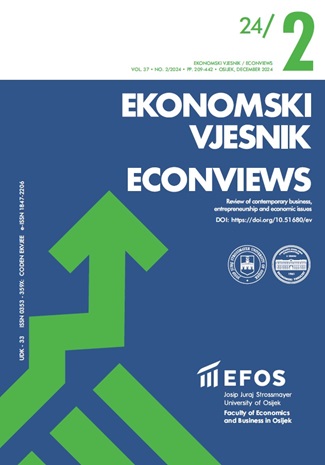Smart city efficiency assessment model: Multi-criteria analysis of 127 Croatian cities
Smart city efficiency assessment model: Multi-criteria analysis of 127 Croatian cities
Author(s): Ana Babić, Andrea Arbula Blecich, Nikolina Dukić SamaržijaSubject(s): Economy, Rural and urban sociology
Published by: Sveučilište Josipa Jurja Strossmayera u Osijeku, Ekonomski fakultet u Osijeku
Keywords: smart city; relative efficiency; Data Envelopment Analysis (DEA); ISO standards;
Summary/Abstract: Purpose: The aim of this paper is to present a model for the efficiency assessment of smart cities based on 38 indicators (ISO standard 37120, ISO standard 37122 and additional indicators) in six dimensions of a smart city in order to produce a ranking of 127 cities in Croatia. Methodology: In this study, the Data Envelopment Analysis (DEA) method was used, which was preceded by the translator invariance method due to the standardization of 38 absolute values. The analysis was performed using the input-oriented BCC model. The input values are previously formed indices for six dimensions of smart cities; the index of the development of smart cities was selected as the output. Results: According to the results of the ranking, 33 (26%) cities are efficient, while 94 (74%) cities are inefficient. The most efficient cities are Korčula, Split, Pazin, Rijeka and Dubrovnik, while the most inefficient cities are Skradin, Petrinja, Bakar, Komiža, Glina and Kutina. Conclusion: By identifying the dimensions that have the greatest impact on the efficiency of smart cities, DMUs gain valuable information about the position of an individual city compared to other cities. Providing an overview of existing efficiency levels and suggesting improvement measures enables targeted changes towards efficiency.
- Issue Year: 37/2024
- Issue No: 2
- Page Range: 379-391
- Page Count: 14
- Language: English

